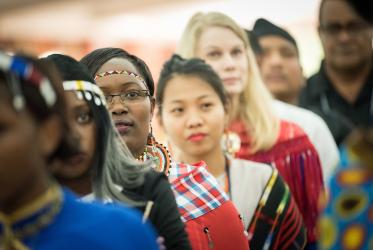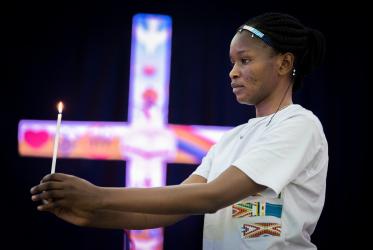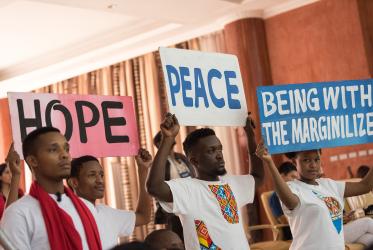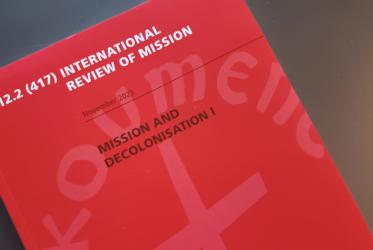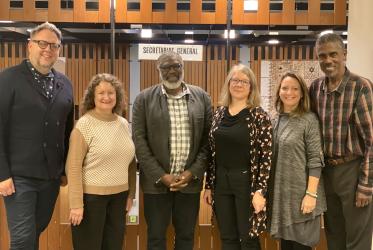Following up on the WCC 11th Assembly, speakers and participants revisited and re-heard some of the decolonizing voices who inspired the movements that helped the WCC come of age during the decolonization struggles of the 1950s and 60s.
The webinar helped participants to better understand the calls for decolonization today; begin to unmask persisting colonial powers within our systems; frame a programme for a decolonizing missiology; and contribute to the wider WCC engagement on decolonization.
“Our work needs to be developed to allow and engage the different histories we each bring, and harness the powerful practices, vision, and spiritualities that can lead us into this deeper experience of justice, reconciliation, and unity,” said Rev. Dr Peter Cruchley, director of the WCC Commission for World Mission and Evangelism. “The decolonization work the WCC led through the 1960s and 70s is not complete, because colonization is not over and this era of neo-colonization is yet more pervasive and powerful.”
Participants discussed the interconnected, colonially-rooted crises of climate change, economic inequity, and supremacist and xenophobic practices. “God is amongst the wreckage and trauma of our systems posing the alternative of a world sustained in justice, offering reconciliation wrought through repentance and change, a unity arrived through the motion of putting the last first,” said Cruchley. “Witnessing to this alternative world—placing the last first—shapes the concept we bring to the vision and work of decolonization.”
Participants pressed for work that emphasizes the production of de-colonial methods, habits, and systems that persistently seek transformation.
“The seminar allowed us to shift from the global perspective on de-colonialism to consider it in the context of Portugal, which as Nuna, one of our Portuguese activists reminded us, was the first to start Europe’s colonial oppression of the world and the last to stop,” said Cruchley. “She challenged the WCC further, telling us that it is ‘impossible to speak about liberation, without confronting religion and our violence in the name of God.’ ”
One of the days focused on the experience of Portugal as a nation where western colonial expansion began. In a message, the Portuguese Council of Churches said: “With Portugal beginning the Age of Discovery in the 15th century and having been a colonizing country throughout its history and involved in different colonial wars, the issue of decolonization continues to be a difficult topic to approach in Portuguese society given its implications for rebuilding memories and experiences inherited from the past.”
Participants also explored how churches may be part of the problems of racism, patriarchy, and violence. “Prof. Angela Xavier a Roman Catholic activist and academic, spoke of a recent survey in which 40% of the Portuguese population freely admitted racist opinions,” said Cruchley. “She pointed to the urgent need to intervene in the collective memory of nations whose colonial myth conceals truths which might set us free if we face them.
“Putting the last first frames us firmly in the mission from the margins model of ecumenical missiology, which is underpinned by transforming discipleship,” concluded Cruchley.

